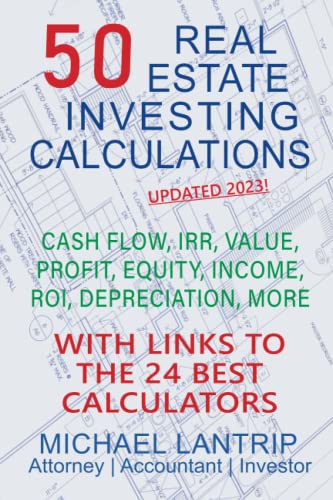Real estate investing is no stroll in the park, folks; it’s a game filled with twists and turns, especially when Uncle Sam comes knocking for his cut. One of the least understood – yet most important – aspects of this game is the depreciation recapture tax rate. Let’s dive in, shall we?
![Depreciation Recapture Explained [Tax Smart Daily 007]](https://www.mortgagerater.com/wp-content/cache/flying-press/ex9Hd4Wizrs-hqdefault.jpg)
Delving into the Basics of Depreciation Recapture
First things first: depreciation is the gradual loss of an asset’s value over time – a nifty little tax deduction for property investors, allowing you to account for the wear and tear on your real estate. But, ever heard the saying “what the tax man giveth, the tax man taketh away”? Well, that’s depreciation recapture in a nutshell. When you sell a property for more than its depreciated value, the IRS comes a-knocking to recapture some of that sweet depreciation benefit you’ve been enjoying.
Oh, and just when you’re warming up that calculator to figure out how much you owe, the tax rate punches in. The depreciation recapture tax rate currently lounges at a cozy 25%, which is the max amount you’ll have to fork over on the recaptured amount.
Real Estate Investing Calculations Cash Flow, IRR, Value, Profit, Equity, Income, ROI, Depreciation, More

$15.95
Invest in real estate with confidence using the comprehensive Real Estate Investing Calculations guide. This essential tool equips investors with the ability to accurately compute various critical financial metrics that are pivotal to making informed investment decisions. Users will delve into calculations like Cash Flow, measuring the net amount of cash moving in and out of investments, and Internal Rate of Return (IRR), which gauges the profitability of potential investments over time. Moreover, this guide simplifies complex terms and formulas into accessible knowledge, empowering users to forecast future income and appreciate the true value and profit potential of their real estate ventures.
Expanding the investor’s toolkit, the guide breaks down the concept of Equity, helping to understand how much of a property is truly owned versus what is owed. It clarifies the nuances of Income calculations, detailing how rental revenue should be assessed in contrast to operating expenses to establish a property’s earning power. Further, the all-important Return on Investment (ROI) is demystified, providing a clear view of the performance ratio to evaluate the efficiency of the investment. It also thoroughly explores Depreciation, offering strategies to maximize tax benefits by accounting for the decrease in the value of real estate assets over time.
Maximize wealth generation with the Real Estate Investing Calculations guide by enhancing your ability to project and increase property Equity and craft strategies for long-term Income generation. This tool is not only about immediate gains but about fostering sustainable profitability through savvy investment analysis. With a deep dive into ROI calculations, investors can fine-tune their strategies to optimize returns. Lastly, the guide’s insights into Depreciation allow for smart tax planning, ultimately improving the overall financial performance of real estate portfolios.
Exploring the Nuances of the Depreciation Recapture Tax Rate
Here’s where things get a touch more complex. Not all properties are created equal in the eyes of the tax code. There’s this thing called “1250 property“, which generally refers to real estate buildings and structures. The depreciation recapture tax rate for these darlings caps at 25%.
But here’s a kicker: this rate is applied only to the portion of your gain equivalent to all the depreciation you’ve taken – not a cent more. So, if you’ve been savvy with your depreciation deductions, you should brace yourself for a reunion with some of those dollars when you sell.

| **Aspect** | **Details** |
|---|---|
| Definition | Depreciation recapture is a tax provision that requires taxpayers to pay tax on the gain realized upon the sale of depreciable real estate property, to the extent of previous depreciation claimed. |
| Applicable Tax Rate | Federal tax rate for depreciation recapture is capped at 25%. |
| Tax Base | The total of all depreciation deductions claimed on the property is the gain subject to the depreciation recapture tax. |
| Tax Type | The tax is classified as unrecaptured section 1250 gain. |
| Maximum Rate | As of 2023, the maximum rate for unrecaptured section 1250 gains is 25%. |
| Relation to Ordinary Income Tax | Depreciation recapture may be taxed at the investor’s ordinary income tax rate, but not exceeding the maximum of 25%. |
| Relation to Capital Gains Tax | Profits from the sale of the property beyond the amount of depreciation recapture are taxed at capital gains rates of 0%, 15%, or 20%, depending on the seller’s income bracket. |
| Calculation Context | When selling depreciable real estate, the recaptured amount is the part of the gain equivalent to accumulated depreciation. The remainder is taxed as a capital gain. |
| Effective Dates | As noted in the recent updates, the information provided applies as of the year 2023. |
| Importance of Understanding | Properly understanding the depreciation recapture tax rate is crucial for real estate investors to accurately calculate tax liabilities when selling depreciated property. |
| Applicability | It is applicable solely to depreciable real estate, upon the sale of such properties. |
| Reason for the Tax | Depreciation is considered a form of deferred income. When the property is sold, the IRS requires the taxpayer to “pay back” the tax benefit received from depreciation. |
The Tax Implications of Recapture for Various Assets
Now, let’s pit real property against personal property in a tax squared circle. Real property (real estate, land, buildings… you catch my drift) usually falls under the watchful eye of the 25% cap for depreciation recapture. Personal property, however, (think equipment, machinery, the office fridge…) waltzes to the beat of a different drum: the ordinary income tax rates.
What’s the real-world tax impact, you ask? Well, imagine you’ve turned your old pad into a rental, following guidelines on “How To rent out Your house“. Nice. But when it comes time to sell, you’re facing recapture on all the depreciation you claimed while it sat in the rental market. Ouch.

The Interplay Between Depreciation and Capital Gains
Lean in, because this is where it gets downright juicy. The IRS doesn’t just let you reduce your property’s basis with depreciation then slip out the back door with the profits from the sale like a bandit in the night. Oh no. You have to reckon with capital gains tax, too. And guess what? Depreciation nudges that basis down, ballooning your potential capital gain. Wild, isn’t it?
But here’s the silver lining: the recapture part is maxed at 25%, while any additional profit might be slapped with the capital gains tax rate – and that could range from 0%, 15%, to 20%, depending on your bracket. Different taxes, different rules… keeps life interesting, huh?
Tax Cuts And Jobs Act For Real Estate Investors The New Rules

$9.95
The “Tax Cuts and Jobs Act For Real Estate Investors: The New Rules” is an essential guide for property investors looking to navigate the complexities of the latest tax reforms. This comprehensive manual delves into the concrete changes brought about by the Tax Cuts and Jobs Act (TCJA), with a focus on its implications for the real estate market. Real estate investors will find detailed information on the new tax brackets, deductions, and the potential impact on investment strategies, allowing them to make informed decisions and maximize their financial outcomes.
In this practical guide, investors will learn how the TCJA specifically alters the tax landscape for real estate holdings, from residential rentals to commercial properties. Critical topics include the 20% pass-through deduction provisions, modifications to the 1031 “like-kind” exchange rules, and the nuances of mortgage interest deductibility. The book simplifies these complex subjects into clear, actionable advice, enabling real estate professionals to optimize their tax position.
Moreover, “Tax Cuts and Jobs Act For Real Estate Investors: The New Rules” is not just about understanding the current laws; it also offers strategic planning tips to leverage these changes effectively. From new depreciation schedules and opportunity zone investments to estate planning and entity structuring, the guide equips investors with forward-looking strategies to capitalize on tax benefits. This book is a valuable resource, ensuring that real estate investors of all levels remain ahead of the curve in a rapidly evolving financial and legislative environment.
Understanding the Conditions that Lead to Recapture
Alright, let’s set the stage for when the depreciation recapture makes its grand entrance. It’s showtime when you sell a depreciable asset for more than its depreciated value – simple as pie. But, huddle up, ’cause there’re exemptions, like if your sale price is a spitting image of your adjusted basis or less. No gain, no recapture. Got it?
Now, let’s not forget, depreciation doesn’t always land gently like a butterfly. For real estate, this mostly pertains to rental or business property – you know, the sorts you’ve read about under “What Is subsidized housing“. Now, if said property’s been hogging a spot in your portfolio since Lincoln was in office, a whole different world of rules could pop up. A tax professional might just become your new BFF.

Strategies to Navigate Depreciation Recapture Tax Rate
Time for a huddle, team. There are moves we can make to dodge a hefty tax burden slam dunk style. Picture this: a 1031 exchange. It’s like a magic trick where you swap one investment property for another and make the recapture tax disappear – for a while at least.
But here’s the play-by-play: you got to swap like-for-like in terms of real estate, and better sprint to do it within the specified time frames. Remember though, you’re just deferring taxes, not giving them the slip entirely. Always play the long game.

Working Through the Calculation of Depreciation Recapture
Calculating depreciation recapture is like working through your grandma’s secret meatloaf recipe – it’s a step-by-step process, and you better not miss a beat. So here’s what you do: tally up all that depreciation you’ve been deducting over the years.
Next, subtract your property’s adjusted basis (that’s what you paid for it minus all the depreciation) from the sales price – that’s your total gain. The part of this gain up to the accumulated depreciation is what gets hit with the 25% recapture tax. Let’s say you’re in the business of flipping houses, and want a peek at a proof Of funds letter to convince the seller you’re the real deal. Just remember, if you flipped and depreciated, you gotta recapture.
Preparing for the Recapture Tax: Tips for Effective Record-Keeping
Let’s cut to the chase: meticulous record-keeping for depreciation is about as critical as your morning cup o’ joe – don’t skimp on it. You’ll want to have a cozy chat with the IRS about every dime of depreciation you claimed, and for that, you need your documentation snug as a bug.
And look, technology’s a marvel; use software tools that keep tabs on your depreciation like a hawk. This isn’t just about being ready for tax season; it’s about keeping your sanity intact when those numbers start doing the tango in front of your eyes.

The Future of Depreciation Recapture: Trends and Predictions
Here’s the scoop: the tax landscape is about as predictable as a toddler with a paintbrush – things could change at the drop of a hat. Will our pals at the IRS hike up the depreciation recapture tax rate? Hard to say. Could policies shift and shake up the whole recapture scene? You bet.
So, stay on your toes and keep your ear to the ground. Staying informed isn’t just smart; it’s your armor in the real estate gladiator arena. Don’t get blindsided by the tax man’s next move.
Leveraging Professional Guidance on Depreciation Recapture
Now, don’t go playing lone ranger with something as intricate as depreciation recapture. A tax advisor’s worth their weight in gold (or at least in tax savings). These wizards can find tax angles you didn’t even know existed, turning a mountain of potential tax into a manageable molehill.
Let’s face it, the depths of tax law are about as welcoming as a shark tank. So, bring a professional along for the dive – they’re the oxygen tanks that’ll keep you breathing easy.

Recapture Revisited: How Real Estate Investors Can Stay Ahead
Alright, we’re nearly home. Remember, failing to plan is planning to fail – Ben Franklin knew his stuff. Stay savvy about depreciation and the looming recapture. Brush up on laws, crunch numbers regularly, and never let yourself be caught with your guard down.
Hear that? It’s the bell for round two, and you’re going in strong, equipped, and ready to make those real estate moves like a chess grandmaster. With knowledge, foresight, and a dash of cunning, you’ll have that depreciation recapture tax rate dancing to your tune in no time.
Whew, what a journey! Just remember, with a bit of learning and a solid game plan, navigating the murky waters of depreciation recapture tax rate doesn’t have to feel like trying to find a needle in a haystack. Keep your head in the game, keep learning, and don’t be afraid to call in a pro when the going gets tough. Happy investing!
Fun Facts and Trivia: The Depreciation Recapture Tax Rate Roller Coaster
Hold Onto Your Hats – It’s Depreciation Recapture!
Hold on to your seats, folks, because we’re about to take a wild ride on the depreciation recapture tax rate roller coaster! Did you know that when you sell a property for more than what you’ve depreciated it for, the IRS is like that friend who remembers that $10 they lent you five years ago? Yep, they come knocking! But instead of a ten-spot, they’re flashing the tax bill—ahem, the flipping tax bill!
Depreciation Recapture: The Star of the Tax Show
When it comes to taxes, depreciation recapture can be quite the show-stopper. Think of it as a surprise encore at the end of a rockin’ concert. The star? Your sold property. Just when you think things are wrapping up, the IRS takes the stage, ready to recapture some of that depreciation you’ve been claiming. And let me tell ya, they’re just as eager as a teenage fan at a concert who’s just waiting for that moment to catch a flash Of excitement.( But don’t worry; it’s all part of the tax code’s playlist!
Say What? Recapture Rates Can Vary!
Now, here’s a head-scratcher. You’d think that there would be just one standard rate for this whole recapture fiasco, right? Wrong-o! Strap in, because depending on the asset, you could be looking at different rates. Say you’re dealing with real estate—it’s kinda like that secret menu item at your favorite burger joint: special and not quite like the rest!
Before You Go…
Just remember, while the depreciation recapture tax rate might seem like that annoying fly that won’t buzz off during your summer BBQ, it’s actually a super important part of understanding your overall tax situation when selling a depreciable asset. Like a juicy piece of gossip, it’s better to know all about it than be caught off guard. So keep your eyes peeled, and studies up, because knowledge is power—especially when it comes to tangoing with taxes!
Now, wasn’t that a tax trivia trip worth taking? Sure beats counting sheep or watching paint dry!

How is recapture of depreciation taxed?
Oh boy, the tax man cometh, and he’s got his eye on that sweet, sweet recapture of depreciation. When you’re dealing with taxes on depreciation recapture, Uncle Sam’s gonna want a cut of the profit that stems from the difference between the actual sale price and the depreciated value of your property. This is usually taxed at your ordinary income tax rate up to a maximum of 25%. So grab your calculator and buckle up; tax season is a wild ride!
What is the depreciation recapture rate for 2023?
Well, isn’t that the million-dollar question! For 2023, if you’ve sold a depreciable asset like a rental property, the depreciation recapture rate that’ll poke its head around your finances is up to 25%. Remember, this is the max rate—what you’ll actually pay could be less, but it’s dependent on your regular income tax bracket.
What is the tax rate for unrecaptured depreciation?
So you’ve got unrecaptured depreciation, and now you’re wondering what Uncle Sam’s gonna charge? The tax rate for unrecaptured Section 1250 depreciation usually struts in at a maximum of 25%. But if you’re in a lower tax bracket, the rate could drop, giving your wallet a little breathing room.
What happens when you sell a fully depreciated property?
Here’s the skinny when you sell a property that’s shrugged off its depreciation like last year’s fashion: you’d think it’s all gravy, but the IRS still wants a piece of the action. You’re likely facing two things – a potential depreciation recapture tax if you sold it for more than its depreciated value, and capital gains taxes on any profit over the original purchase price. Juggling taxes, fun times!
Is depreciation recapture tax rate always 25%?
Is the depreciation recapture tax rate always stuck at 25% like glue? Well, most of the time it’s glued there, but not always. If you’re in a lower tax bracket, you might pay less. But remember, if you’re rolling in it, the IRS caps it at 25%, so that’s the ceiling.
Is depreciation recapture always 25%?
Seems like 25% is all the rage when talking about depreciation recapture, doesn’t it? But hold your horses—while that’s the top rate, you’ll pay whatever your ordinary income tax rate is up to that point. So, it isn’t always a quarter of your gain that flies away to the tax nest.
How do you calculate depreciation recapture on a real estate sale?
Got property and sold it? It’s time to calculate some depreciation recapture. Dig out your sale price and subtract the property’s adjusted basis (original cost minus all the depreciation you claimed or could’ve claimed). If there’s a gain and it’s because of depreciation, the IRS has a slice of your pie earmarked as depreciation recapture—yum!
What is annual recapture rate?
Oh, the annual recapture rate, that pesky little critter—it’s not a flat rate but a concept that’s part of the larger depreciation recapture picture. It depends on how much you’ve depreciated the property each year, and if you sell, it comes back to bite in the form of taxes!
Is 15 year property subject to depreciation recapture?
Peek-a-boo, does 15-year property get caught by depreciation recapture? You betcha! When you sell property like qualified lease improvements, that depreciation you’ve been enjoying comes back to haunt your tax bill—if you sell it for more than the adjusted basis, that is.
Can you avoid the depreciation recapture tax?
Think you can dodge the depreciation recapture tax like a pro? Here’s a tip: strategies like a 1031 exchange might push the tax bill down the road, but outrunning it completely is like trying to avoid gravity. Good luck with that—best to plan ahead and talk to a tax advisor.
What happens when I sell a fully depreciated vehicle?
Vroom, vroom, sell that fully depreciated vehicle, and what happens? The IRS doesn’t care if it’s lost all its value on your books; if you sell it for more than its depreciated value, you’ve got a date with depreciation recapture. Better keep your financial ducks in a row!
Is depreciation recapture part of adjusted gross income?
Ah, here’s a brain-teaser: Is depreciation recapture part of your adjusted gross income (AGI)? Yep, it jumps right into the mix. When calculating your AGI, you’ve got to include the recapture because, well, the IRS wants a clear picture of your financial canvas.
What triggers depreciation recapture?
So, what flips the switch on depreciation recapture? Selling a depreciated asset above its adjusted basis is like yelling “Bingo!” in a quiet room—it triggers the recapture, and you’ve got to pay taxes on that portion of the gain. Keep your financials tight; the IRS is playing the long game!
What happens if you never took depreciation on a property and then sold it?
It’s like finding a twenty in your old jeans! If you didn’t take depreciation and then sell the property, the IRS acts like you did and says, “Surprise, you owe taxes!” They calculate depreciation recapture on what you could have claimed. Always consult a tax pro to avoid an unexpected tax season party.
How is the sale of a depreciated asset taxed?
When you sell a depreciated asset, Uncle Sam rolls up his sleeves for a piece of the pie. You’ll pay capital gains tax on the profit above your original purchase price, and don’t forget the side dish—depreciation recapture on the chunk of gain that’s thanks to depreciation deductions.
Is depreciation recapture taxed as ordinary income?
Is depreciation recapture like your garden-variety income? Not quite! It strolls in taxed at your ordinary income tax rate, but only up to that fashionable 25% cap. So you won’t pay more than that, even if your regular tax rate is strutting higher.
Is depreciation recapture offset by capital losses?
If you’re tangled in capital losses, can they offset your depreciation recapture? In a twist, capital losses can square dance with capital gains, but depreciation recapture is a different dance partner altogether—it’s taxed separately, so no tango there.
Where does depreciation recapture go on tax return?
Wondering where depreciation recapture goes on your tax return? It sneaks onto Form 4797, where you report the sale of business or rental property. Line by line, you’ll reveal your gains or losses, with any recapture shaking hands with your total income. Keep those numbers honest—the IRS has eagle eyes!
Is depreciation recapture part of adjusted gross income?
Just in case you needed an encore: Yes, depreciation recapture is part of your AGI. The IRS counts it when they’re finessing your total income canvas, ready to paint the big picture of what you owe. So, don’t try to hide it; the IRS has a good memory!



